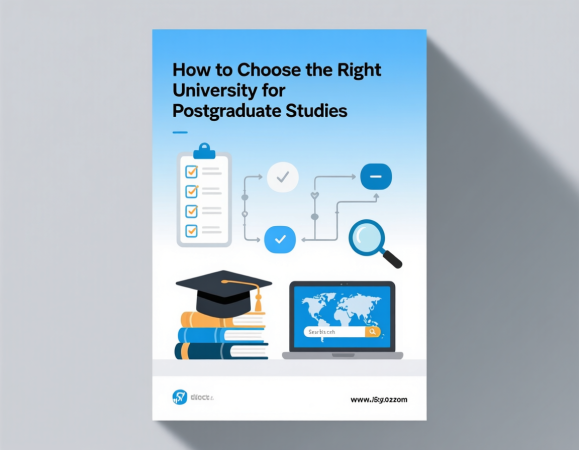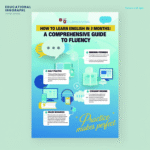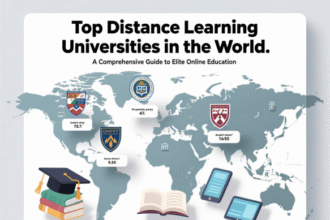Selecting the right university for postgraduate studies is a pivotal decision that shapes academic, professional, and personal trajectories. With countless institutions offering diverse programs, navigating this choice demands careful consideration of multiple factors. This comprehensive guide explores every facet of choosing the ideal university for postgraduate education, ensuring informed decisions align with individual goals and aspirations.
- Understanding Your Postgraduate Goals
- Researching University Rankings and Reputation
- Evaluating Program Quality and Specialization
- Assessing Research Opportunities
- Considering Location and Lifestyle
- Financial Considerations and Funding Options
- Exploring Campus Facilities and Resources
- Networking and Career Opportunities
- International Considerations for Global Students
- Application Process and Requirements
- Comparing Program Delivery Modes
- Evaluating Faculty and Mentorship Opportunities
- Understanding Program Flexibility and Interdisciplinary Options
- Assessing Student Life and Community
- Long-Term Career Impact of Your Choice
- Recommendations and Suggestions
- Frequently Asked Questions (FAQs)
Understanding Your Postgraduate Goals
The journey to selecting the right university for postgraduate studies begins with defining clear objectives. Postgraduate programs, whether master’s degrees, PhDs, or professional qualifications, vary in scope and purpose. Reflecting on academic and career goals is essential to narrow down options.
- Academic Aspirations: Are you pursuing a master’s to deepen expertise in a specific field, or is a PhD your goal for advancing research? For instance, a master’s in data science might suit those aiming for industry roles, while a PhD in physics could align with academic research ambitions.
- Career Objectives: Consider how the degree supports professional growth. Programs like MBAs cater to leadership roles, whereas specialized master’s degrees, such as environmental policy, prepare graduates for niche sectors.
- Personal Growth: Postgraduate studies often involve relocating or adapting to new environments. Evaluate whether you seek cultural immersion, networking opportunities, or personal development through international exposure.
By aligning program choices with these goals, we ensure the selected university supports both immediate academic needs and long-term aspirations.
Researching University Rankings and Reputation
University rankings provide a snapshot of institutional quality, but they require nuanced interpretation. Reputable ranking systems like QS World University Rankings, Times Higher Education, and ARWU (Shanghai Rankings) evaluate universities based on academic reputation, research output, and employer perceptions.
- Global Rankings: Institutions like Oxford, Harvard, and MIT consistently rank high due to their research facilities and faculty expertise. However, top-ranked universities may not always offer the best program for your specific field.
- Subject-Specific Rankings: For postgraduate studies, subject rankings are often more relevant. For example, a university like ETH Zurich excels in engineering, while the London School of Economics shines in social sciences.
- Regional Reputation: In some industries, regional reputation matters. For instance, universities in Singapore, such as NUS, are highly regarded in Asia for business and technology programs.
Beyond rankings, consider the university’s reputation among employers and alumni networks. A strong reputation enhances employability and opens doors to professional opportunities.
Evaluating Program Quality and Specialization
The quality and focus of a postgraduate program are critical in choosing the right university. Not all programs within a university are equally robust, so delving into program-specific details is essential.
- Curriculum Structure: Examine course modules, electives, and flexibility. Does the program allow customization to match your interests? For example, a master’s in public health might offer tracks in epidemiology or global health policy.
- Faculty Expertise: Research the faculty’s credentials, publications, and industry connections. Professors with active research portfolios or industry experience can provide mentorship and networking opportunities.
- Specializations and Tracks: Some universities offer niche specializations, such as cybersecurity within computer science or sustainable finance in business programs. Ensure the program aligns with your career path.
Accreditation is another key factor. Programs accredited by bodies like AACSB (business), ABET (engineering), or AMBA (MBA) meet rigorous academic standards, ensuring global recognition.
Assessing Research Opportunities
For research-focused postgraduate studies, such as PhDs or research master’s, the availability of cutting-edge facilities and funding is paramount.
- Research Facilities: Investigate laboratories, libraries, and access to specialized equipment. For example, a university like Caltech offers state-of-the-art facilities for physics and engineering research.
- Funding Opportunities: Many universities provide scholarships, grants, or teaching assistantships. Programs like the Fulbright or Erasmus Mundus offer financial support for international students.
- Research Output: Review the university’s publication record and citation impact. High research output indicates a vibrant academic environment conducive to innovation.
Collaborations with industry or other institutions can also enhance research opportunities, providing access to real-world applications and interdisciplinary projects.
Considering Location and Lifestyle
The university’s location influences both academic and personal experiences. Factors like cost of living, cultural environment, and proximity to industry hubs play a significant role.
- Urban vs. Rural Settings: Urban universities, like NYU in New York, offer proximity to industries and networking events, while rural campuses, like Dartmouth, provide focused academic environments.
- Cost of Living: Cities like London or San Francisco have high living costs, which may impact budgeting. Conversely, universities in smaller towns, such as Lund University in Sweden, may offer more affordable living.
- Cultural and Social Fit: International students should consider cultural diversity, language barriers, and social integration. Universities with robust international student offices, like the University of Melbourne, provide support for adaptation.
Climate, safety, and recreational opportunities also contribute to the overall postgraduate experience, affecting well-being and academic focus.
Financial Considerations and Funding Options
Postgraduate studies often require significant financial investment. Understanding costs and funding options is crucial for selecting the right university.
- Tuition Fees: Compare tuition across institutions. For example, public universities in Germany offer low or no tuition for international students, while U.S. private universities like Stanford may charge upwards of $50,000 annually.
- Scholarships and Grants: Many universities offer merit-based or need-based scholarships. Programs like Chevening (UK) or DAAD (Germany) support international postgraduate students.
- Work Opportunities: Some countries allow part-time work for students. For instance, Canada permits international students to work up to 20 hours per week during term time.
- Return on Investment (ROI): Evaluate the program’s ROI by considering graduate employment rates and average salaries. Business schools like INSEAD boast high ROI due to strong industry connections.
Creating a detailed budget, including tuition, accommodation, and living expenses, helps in making financially sound decisions.
Exploring Campus Facilities and Resources
Campus facilities enhance the postgraduate experience, supporting both academic and personal growth.
- Libraries and Study Spaces: Universities like Cambridge offer extensive libraries with rare collections, ideal for research-intensive programs.
- Technology and Innovation Hubs: Institutions with innovation centers, such as Stanford’s d.school, foster entrepreneurship and collaboration.
- Student Support Services: Look for career counseling, mental health resources, and academic support. Universities like the University of Toronto provide comprehensive student services.
Extracurricular facilities, such as sports centers or cultural societies, also contribute to a well-rounded postgraduate experience.
Networking and Career Opportunities
A university’s network can significantly impact career prospects. Strong alumni networks and industry connections open doors to internships, jobs, and collaborations.
- Alumni Networks: Universities like Harvard or LSE have global alumni networks that facilitate mentorship and job opportunities.
- Career Services: Robust career services, including resume workshops and job fairs, are vital. For example, MIT’s career office connects students with top tech firms.
- Industry Partnerships: Programs with ties to industries, such as UCL’s partnerships with pharmaceutical companies, offer practical experience and job placements.
Engaging with alumni and attending university career events can provide insights into the program’s career outcomes.
International Considerations for Global Students
For international students, additional factors influence the choice of the right university for postgraduate studies.
- Visa and Immigration Policies: Research visa requirements and post-study work options. Countries like Canada and Australia offer post-graduation work visas, enhancing employability.
- Language Requirements: Most programs require proficiency in the language of instruction, often English. Tests like IELTS or TOEFL are standard for non-native speakers.
- Cultural Adaptation: Universities with diverse student bodies, like the University of British Columbia, offer support for international students through cultural integration programs.
Understanding these factors ensures a smoother transition to studying abroad.
Application Process and Requirements
The application process for postgraduate programs varies by university and country. Understanding requirements streamlines the process.
- Academic Prerequisites: Most programs require a bachelor’s degree with a minimum GPA. Some, like Oxford’s graduate programs, demand first-class honors or equivalent.
- Standardized Tests: Programs may require tests like the GRE, GMAT, or subject-specific exams. For example, business schools often mandate the GMAT.
- Supporting Documents: Prepare a strong statement of purpose, letters of recommendation, and a CV. Tailor these to highlight alignment with the program’s goals.
- Deadlines and Timelines: Application deadlines vary. For instance, U.S. universities often have December deadlines for fall admissions, while UK universities may have rolling admissions.
Early preparation and thorough research ensure applications meet university standards.
Comparing Program Delivery Modes
Postgraduate programs are offered in various formats, each suited to different needs.
- Full-Time Programs: Ideal for immersive learning, typically lasting 1-2 years for master’s degrees or 3-7 years for PhDs.
- Part-Time Options: Suitable for working professionals, allowing flexibility but extending program duration.
- Online and Hybrid Programs: Universities like Imperial College London offer online master’s programs, ideal for remote learners but requiring self-discipline.
- Executive Education: Short, intensive programs like executive MBAs cater to senior professionals seeking leadership skills.
Choosing the right delivery mode depends on lifestyle, career commitments, and learning preferences.
Evaluating Faculty and Mentorship Opportunities
The quality of faculty and mentorship significantly impacts postgraduate success.
- Faculty Credentials: Research professors’ academic and industry experience. For instance, a finance program led by a former central bank economist offers unique insights.
- Mentorship Programs: Some universities pair students with faculty advisors for personalized guidance. Stanford’s PhD programs emphasize mentorship for research development.
- Accessibility: Evaluate faculty-to-student ratios. Smaller ratios, like those at Caltech, ensure personalized attention.
Engaging with faculty during open days or through email can provide clarity on mentorship opportunities.
Understanding Program Flexibility and Interdisciplinary Options
Flexibility in postgraduate programs allows customization to meet specific interests.
- Interdisciplinary Programs: Universities like MIT offer interdisciplinary programs combining fields like AI and healthcare, fostering innovation.
- Elective Courses: Programs with elective options, such as NYU’s Stern School of Business, allow students to explore diverse interests.
- Dual Degrees: Some institutions offer dual degrees, like a JD/MBA, combining law and business for versatile career paths.
Flexible programs enable students to tailor their education to unique goals.
Assessing Student Life and Community
A vibrant student community enhances the postgraduate experience, fostering collaboration and support.
- Student Organizations: Clubs and societies, like those at Yale, provide networking and leadership opportunities.
- Diversity and Inclusion: Universities with inclusive environments, such as the University of Cape Town, support diverse student populations.
- Housing and Accommodation: On-campus housing, like that at UCLA, offers convenience, while off-campus options may provide affordability.
A supportive community contributes to academic and personal success.
Long-Term Career Impact of Your Choice
The right university for postgraduate studies influences career trajectories far beyond graduation.
- Employability Rates: Research graduate employment rates. For example, INSEAD reports over 90% of MBA graduates employed within three months.
- Industry Connections: Universities with strong industry ties, like Stanford, facilitate internships and job placements.
- Lifelong Learning: Some institutions offer alumni access to continued education, such as short courses or webinars.
Choosing a university with a strong career focus ensures long-term professional success.
Recommendations and Suggestions
To choose the right university for postgraduate studies, we recommend a structured approach:
- Define Goals: Clearly outline academic, career, and personal objectives to guide your search.
- Research Thoroughly: Use rankings, alumni reviews, and program details to evaluate universities.
- Visit Campuses: If possible, attend open days or virtual tours to assess facilities and culture.
- Connect with Alumni: Reach out to graduates for insights on program quality and career outcomes.
- Plan Finances: Explore scholarships, grants, and part-time work to manage costs.
- Tailor Applications: Craft personalized statements of purpose and secure strong recommendations.
- Consider Flexibility: Choose programs with customizable curricula to align with your interests.
- Evaluate Support: Prioritize universities with robust career and student support services.
By following these steps, we can make informed decisions that align with our aspirations and resources.
Frequently Asked Questions (FAQs)
- What factors should I consider when choosing a university for postgraduate studies?
Key factors include program quality, faculty expertise, research opportunities, location, cost, and career support. - How important are university rankings for postgraduate programs?
Rankings provide insights but should be balanced with program-specific details and personal goals. - Can I pursue postgraduate studies in a different field from my undergraduate degree?
Yes, many programs accept students from diverse backgrounds, though prerequisites may apply. - What is the difference between a taught and research postgraduate program?
Taught programs focus on coursework, while research programs emphasize independent research, like theses or dissertations. - How do I find scholarships for postgraduate studies?
Check university websites, government programs, and organizations like Fulbright or Chevening. - Are online postgraduate programs as valuable as in-person ones?
Online programs from reputable universities are valuable, especially for flexible learning, but require self-discipline. - How do I know if a university’s postgraduate program is accredited?
Verify accreditation through official bodies like AACSB, AMBA, or regional education authorities. - What role does faculty expertise play in postgraduate studies?
Experienced faculty provide mentorship, networking, and cutting-edge knowledge, enhancing learning. - Should I prioritize location when choosing a university?
Location impacts cost, lifestyle, and industry connections, so it’s a key consideration. - How can international students prepare for postgraduate studies abroad?
Research visa requirements, language proficiency, and cultural adaptation support offered by universities. - What is the typical duration of a postgraduate program?
Master’s programs typically last 1-2 years, while PhDs can take 3-7 years, depending on the field. - How do I assess a university’s career services?
Look for job placement rates, alumni networks, and career support like internships or job fairs. - Can I work while pursuing postgraduate studies?
Many countries allow part-time work for students, typically 20 hours per week during term time. - What is the ROI of a postgraduate degree?
ROI depends on program cost, graduate salaries, and employability. Research industry-specific outcomes. - How do I choose between a full-time and part-time postgraduate program?
Full-time suits immersive learning; part-time offers flexibility for working professionals.















